Lavrov-John-Kerry-and-Staffan-de-Mistura-UN-foto-by-Mark-Garten-300x194.jpg" alt="S ergey-Lavrov, John Kerry and-Staffan de Mistura. (UN foto by Mark Garten)" width="300" height="194" /> Sergey-Lavrov, John Kerry and-Staffan de Mistura. (UN photo by Mark Garten)
Munich, 4 Jumadil Awwal 1437/12 February 2016 (MINA) – The United States, Russia and other powers agreed to a “cessation of hostilities” in Syria’s civil war, to take place within the next week, and immediate humanitarian access into besieged areas, Secretary of State John F. Kerry announced here early Friday morning.
“It was unanimous,” Kerry said of a communique issued after hours of meetings among participants in a group of nations that have supported and armed one side or the other in the four-year war. “Everybody today agreed,” he said. But the proof of commitment will come only with implementation. “What we have here are words on paper,” Kerry said.
“What we need to see in the next few days are actions on the ground.”
Russian Foreign Minister Sergei Lavrov said the projected date for ending at least some of his country’s airstrikes in Syria is a week from Friday, but he emphasized that “terrorist” groups would continue to be targeted, including the Islamic State and Jabhat al-Nusra, an affiliate of al-Qaeda’s in Syria that is involved in the fight against President Bashar al-Assad. The group in some instances fights alongside rebel forces supported by the United States and its allies.
Also Read: Syria, Jordan Condemn Netanyahu’s Visit to Occupied Syrian Buffer Zone
The determination of eligible targets and geographic areas is to be left up to a task force of nations, headed by Russia and the United States, that will adjudicate differences of opinion. It is expected but by no means guaranteed that signatories to the agreement will be able to persuade their proxies and allies on the ground, including Assad and the hundreds of opposition groups fighting against him, to honor the terms.
Kerry and Lavrov emphasized that the agreement is not perfect and will require the goodwill and determination of all involved, Mi’raj Islamic News Agency (MINA) reported, quoting the Washington Post.
Lavrov also described a “qualitative” change in U.S. military policy to cooperate with Russia in continuing the fight against the Islamic State. Until now, the Obama administration has declined to deal with Russia except to “deconflict” their airstrikes to prevent their aircraft from running into each other in Syria’s skies.
“The key thing is to build direct contacts, not only on procedures to avoid incidents, but also cooperation between our militaries,” Lavrov said.
Also Read: UNIFIL Reports Over 7,300 Israeli Violations of Lebanese Airspace Since Ceasefire
Kerry said there had been no change in policy, but he said humanitarian and other agreed programs would require the ability “to talk about deployment of forces, the presence of people, who can go where, how they get there, and avoid conflict in ways that are effective” to implement the agreement.
Lavrov described the cessation of hostilities as the “first step” toward a cease-fire, a more formal legal construct that can involve the turning in of arms and demobilization of forces. Instead, he described the immediate goal as more akin to a truce.
The aim is that humanitarian relief begin as early as this weekend, with Russian airdrops to at least seven areas of Syria that cannot be easily reached by road. A second task force of countries, drawn from among the 17 that participated in the talks, will determine the “modalities” of allowing ground convoys of food and medicines to pass through government and opposition lines to reach dozens of other besieged communities.
Kerry and Lavrov acknowledged that they and other members of the group continue to disagree about many issues in Syria, including Assad’s future.
Also Read: Russia Condemns UN Gaza Resolution, Says It Contradicts Palestinian Statehood
The Munich effort was seen as a last chance to stop carnage in Syria that has left hundreds of thousands dead and sent millions fleeing from the country. What was already a desperate situation in the country has greatly worsened over the past few weeks, as massive Russian bombardment in and around the city of Aleppo has scattered opposition fighters and driven tens of thousands of civilians toward the barricaded Turkish border. (T/R07/R01)
Mi’raj Islamic News Agency (MINA)
Also Read: Israeli Airstrike on Palestinian Refugee Camp in Lebanon Kills 13









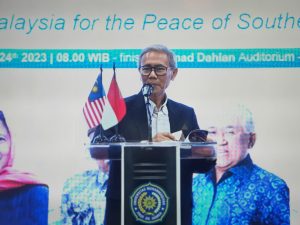


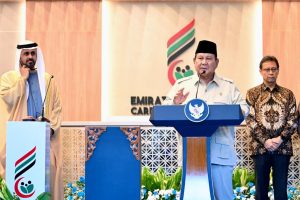
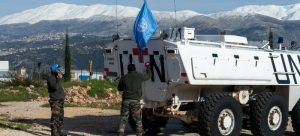
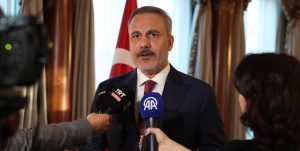

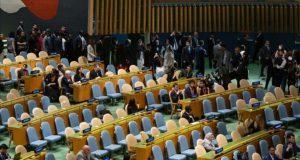
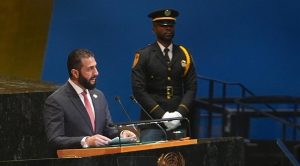
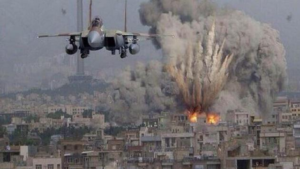













 Mina Indonesia
Mina Indonesia Mina Arabic
Mina Arabic